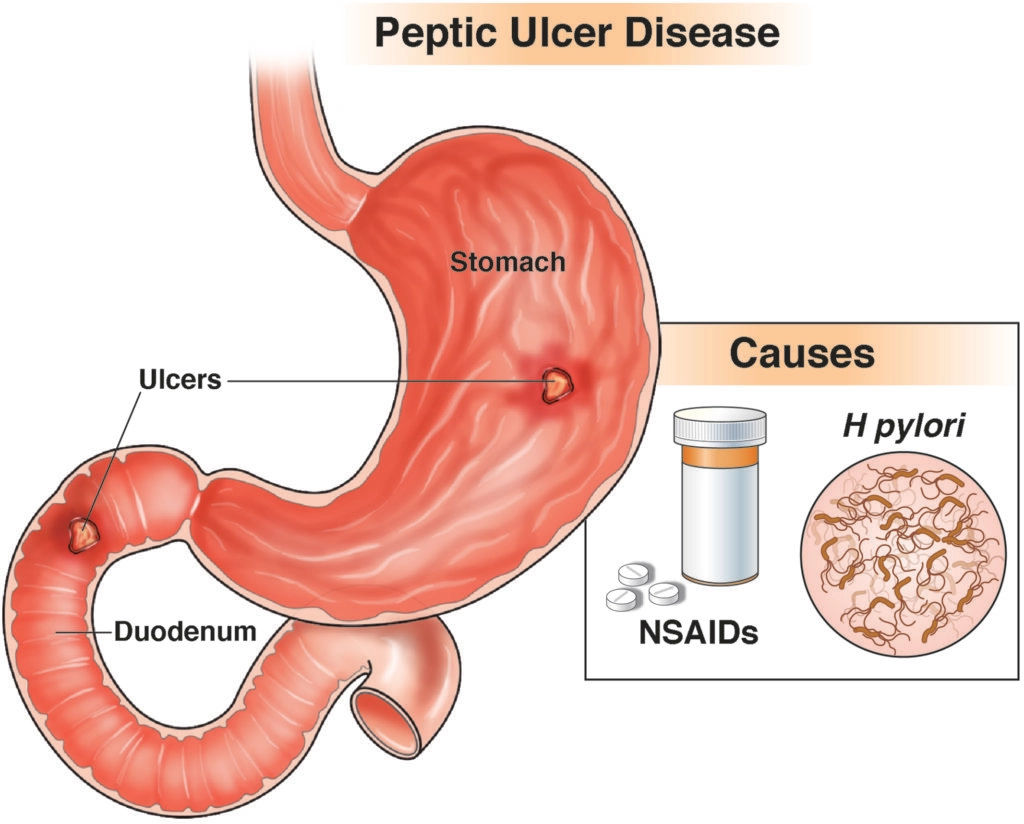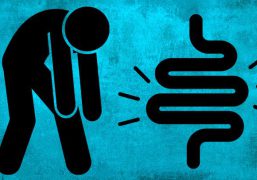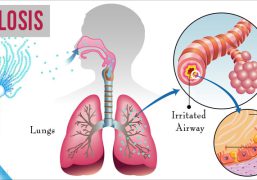Stomach and intestinal ulcers
Stomach and intestinal ulcers are sores that develop in the lining of the stomach or small intestine. These ulcers can be caused by a variety of factors, including bacterial infections, long-term use of nonsteroidal anti-inflammatory drugs (NSAIDs), alcohol consumption, smoking, and stress. The most common symptom of stomach and intestinal ulcers is abdominal pain, which can be dull or sharp and may be worse when the stomach is empty. Other symptoms may include nausea, vomiting, loss of appetite, weight loss, and bloating.
Treatment:
Treatment for stomach and intestinal ulcers typically involves a combination of medication and lifestyle modifications, and in some cases, surgery may be necessary. Here are some common approaches to treating these ulcers:
1. Medications: Several types of medications can be used to treat stomach and intestinal ulcers, including:
2. Antibiotics: If the ulcer is caused by a bacterial infection, antibiotics may be prescribed to eradicate the infection.
3. Proton pump inhibitors (PPIs): These medications reduce the amount of acid produced by
the stomach, which can help the ulcer heal.
4. H2 blockers: These medications reduce the amount of acid produced by the stomach and
can be used in combination with PPIs.
5. Antacids: These neutralize stomach acid and can provide temporary relief of ulcer
symptoms.
6. Lifestyle modifications: Certain lifestyle changes can help alleviate ulcer symptoms and promote
healing, including:
7. Avoiding trigger foods: Spicy and acidic foods, caffeine, and alcohol can irritate ulcers and
should be avoided.
8. Quitting smoking: Smoking can delay healing and worsen ulcer symptoms, so it’s important
to quit smoking if you have an ulcer.






